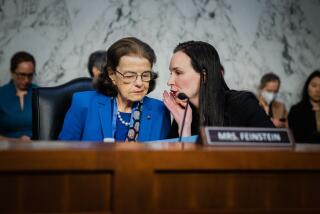A Case of Hubris vs. National Interest
When the American people elect a president, we repose in that person a special trust: the authority to decide for us how best to solve our nation’s problems--in short, to lead us. Most presidents understand that they arrive in office endowed with a modest amount of political capital, popular support that will translate into votes in Congress. The president may choose to spend this capital as he see fit. If he invests it wisely and takes prudent risks toward goals that advance the national interest, his political capital will grow and he will be able to take on larger goals requiring more capital.
Of course the process is never quite as rational as I suggest. Consider for a moment the short list of problems in foreign affairs that require leadership and the expenditure of political capital in the coming weeks. In Asia, a containable financial crisis threatens to spread and may bring on a global recession.
Elsewhere, essentially sound but vulnerable economies such as Brazil’s and Argentina’s may require stopgap financing from the International Monetary Fund to avoid serious downturns that would dramaticallty reduce important markets for U.S. goods and services. In Russia, a country with almost 30,000 nuclear weapons teetering on the brink of chaos, a country where we have a profound interest in nurturing reform, we continue to indulge a cabal of robber barons who grow rich by siphoning the country’s riches while we treat them if they were closet Jeffersons. The list could go on: counterterrorism, foreign drug interdiction and nuclear proliferation from North Korea to South Asia.
To deal successfully with any of these issues, the president must persuade allies, the American people and Congress to support him in taking risks, perhaps even involving life and death. His ability to do so is measured entirely in his personal credibility and the level of respect he enjoys. But back to the White House.
I have described how sensible presidents use their political capital carefully, hoping to build it over time and to use it to improve the quality of life in our country and overseas. At the same time, there are other forces at work.
A governor or president is treated with great deference, given incredible perquisites and courted by the press. Consequently, without great moral strength, he is soon likely to succumb to believing that he deserves all this, that he enjoys superior wisdom and that the burdens of leadership entitle him to indulge his personal appetites. These two forces--hubris and the national interest--compete for a president’s soul.
In President Clinton’s case, hubris has won and now six years into his stewardship of the country, he is out of political capital but facing a daunting list of foreign problems of great importance to U.S. interests that will require both strong leadership and the expenditure of substantial political capital.
Some would disagree with my gloomy assessment and point to the president’s high support ratings and the support for him expressed last month at the U.N. This would seem to belie my assertion that his presidency has received a mortal blow. But judgments like these ignore a determining factor in the resolution of this mess: the role of the Congress. In my observation, neither the press nor the White House has properly assessed the character and gravity of congressional anger over this matter, the depth of its rage toward the president and the paralysis that will grip any foreign or domestic initiative sent to the Hill until the president either resigns or moves with sincerity and conviction to restore a measure of comity with the leaders of the House and Senate in both parties.
Recent revelations of indiscretion by some members of Congress have led too easily to a summary judgment that because people in both branches are cads, “the sexual box score is a wash, so let’s forget it.” There is much more to it than that.
There is a small cadre of representatives and senators who are acknowledged by their colleagues to constitute the conscience of the Congress. These are men and women of probity, character and influence who possess an acknoweldged capacity to act in the bipartisan interest of all Americans. The group includes Sens. Trent Lott, Dick Lugar, Joe Lieberman, Bob Kerrey, Pat Moynihan and, yes, Speaker Newt Gingrich. In the mind of these leaders, the scandal here isn’t about sex or even about lying about sex; it is about the accumulated weight of the president’s corruption of our political ethos, his self-indulgent willingness to put aside our country’s foreign and domestic interests for seven months, his willful abuse of federal institutions and federal employees during this period in an attempt to hide his squalid behavior, and his legalistic self-absorption focused on his, instead of the country’s, long-term interests. And they will refuse to allow him to govern until he acknowledges it, expresses genuine remorse for it and commits himself to atone for the damage he has done. Still, if the president were to deliver such a thorough exegesis, he would be allowed to serve out his term. And historians would record that in the end he showed a measure of character. That is the most he can hope for.
Yet the president seems driven to buy time clinging to the chimerical hope of yet creating a positive legacy. The American people and countries that look to us for leadership deserve better. Vice President Gore would be better; the president should resign.
More to Read
Get the L.A. Times Politics newsletter
Deeply reported insights into legislation, politics and policy from Sacramento, Washington and beyond. In your inbox three times per week.
You may occasionally receive promotional content from the Los Angeles Times.










